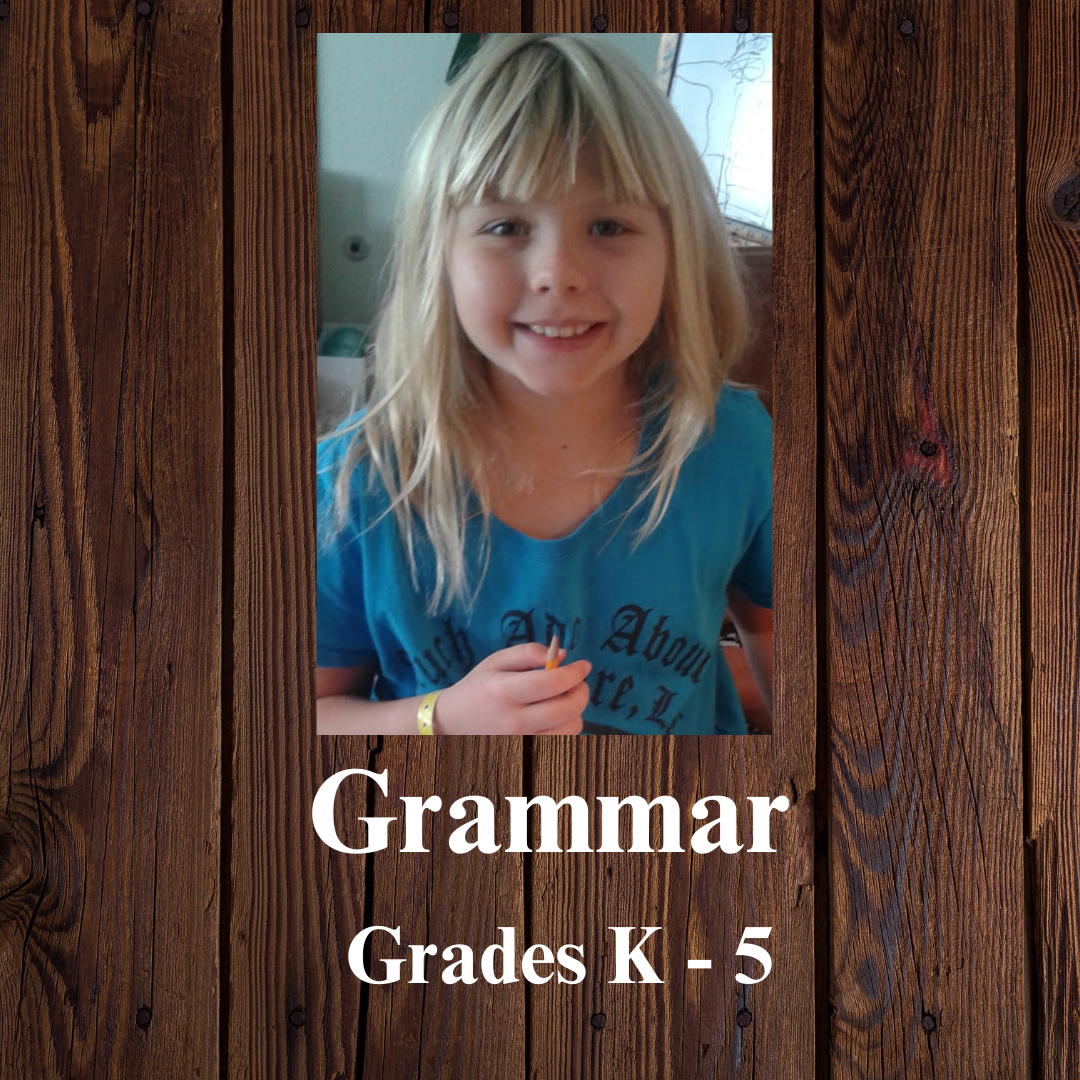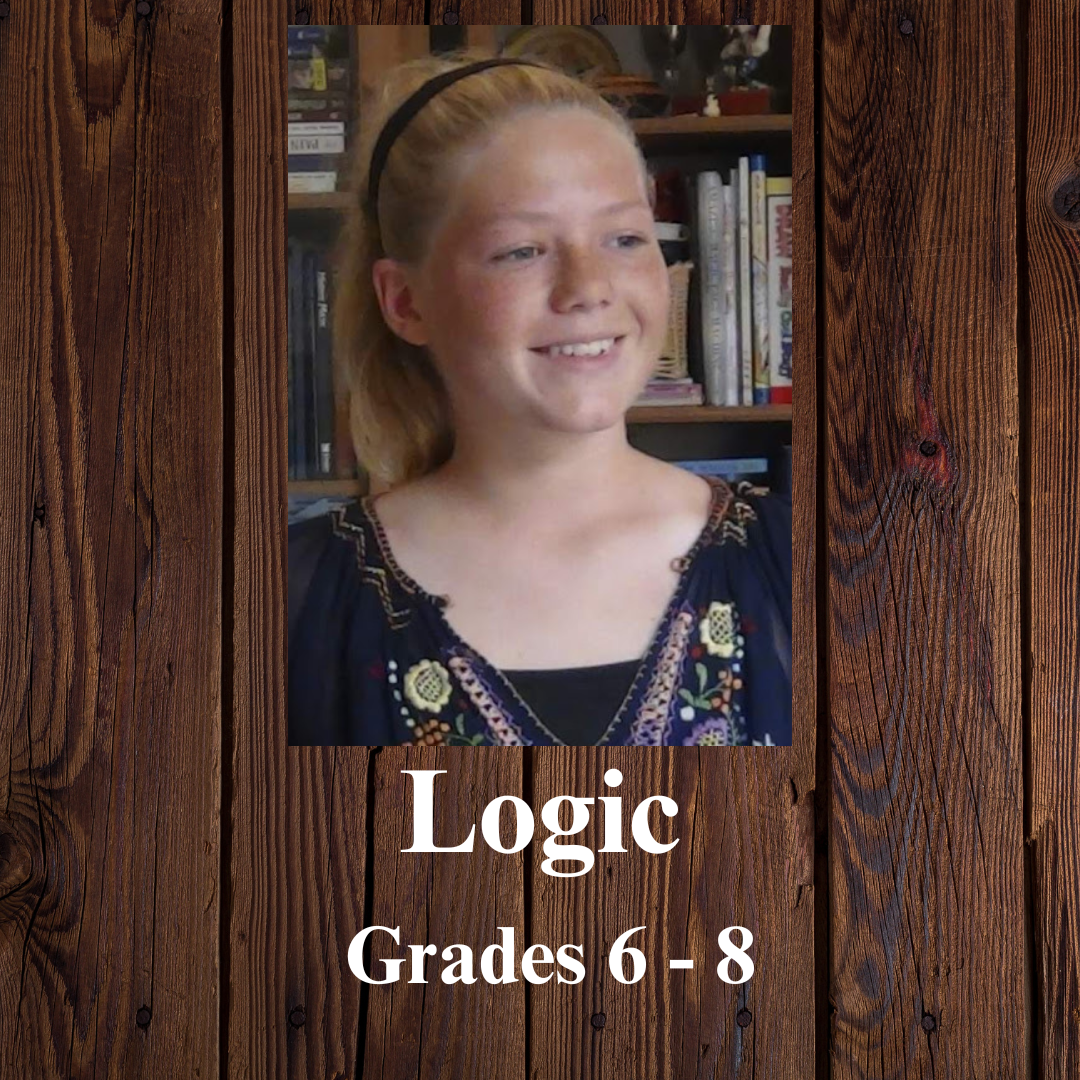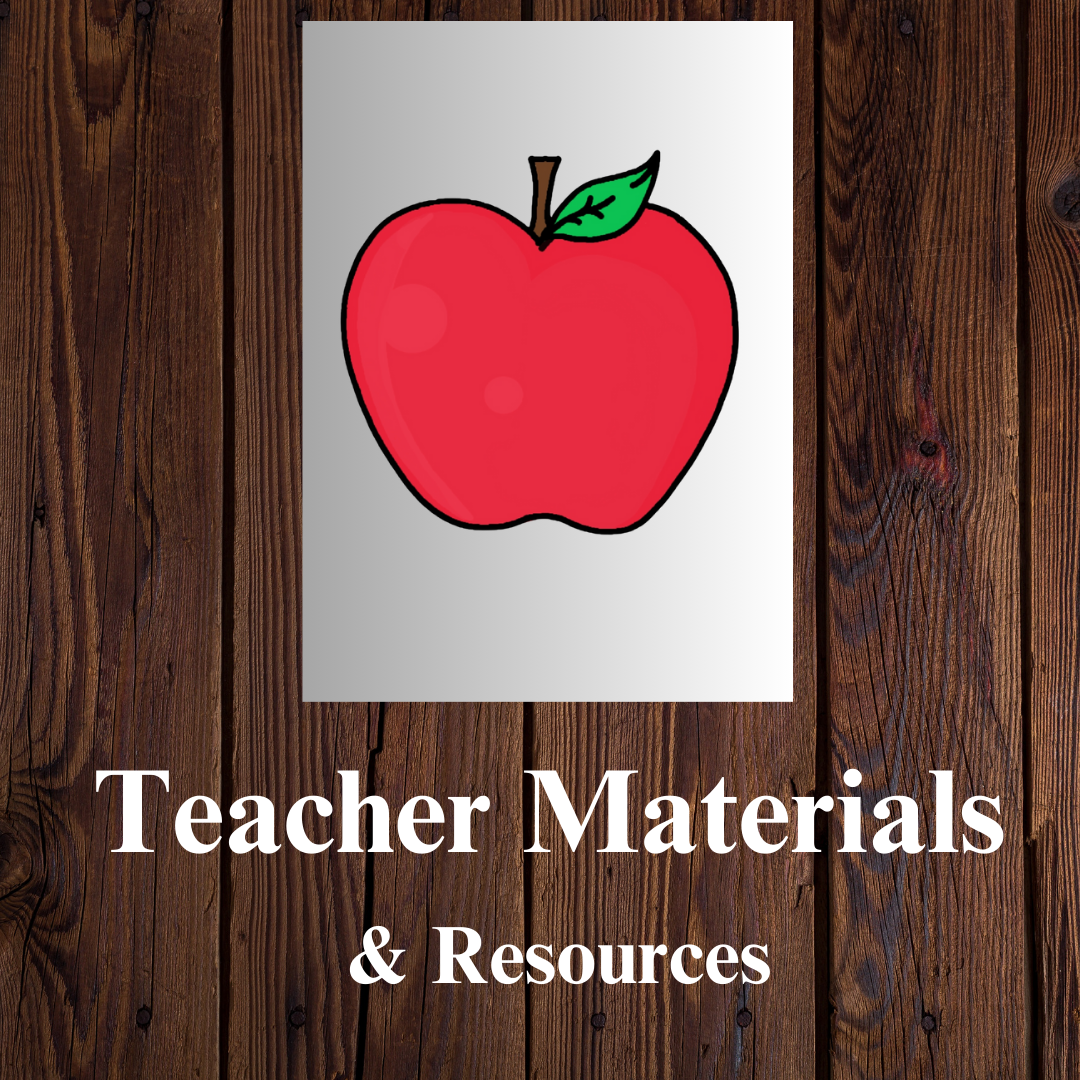Click Here To Shop by History Content
How to Choose Age-Appropriate History Curriculum
Millions of parents and educators want students to learn through the Socratic discussion, but what is the right age to start? The classical education movement has an answer.
Every child undergoes significant intellectual development as they mature. In other words, a third grader is not just smaller than an tenth grader — their mind works differently. This is why it's crucial to choose age-appropriate curriculum.
In classical education, a student's intellectual development can be divided into three phases: Grammar, Logic, and Rhetoric. We have developed our history curriculum, games, and online courses in alignment with the distinct needs and abilities of students in all three phases.
In this article, we'll take a look at our recommendations for each phase of your student's educational journey.
Every child undergoes significant intellectual development as they mature. In other words, a third grader is not just smaller than an tenth grader — their mind works differently. This is why it's crucial to choose age-appropriate curriculum.
In classical education, a student's intellectual development can be divided into three phases: Grammar, Logic, and Rhetoric. We have developed our history curriculum, games, and online courses in alignment with the distinct needs and abilities of students in all three phases.
In this article, we'll take a look at our recommendations for each phase of your student's educational journey.
The Grammar Stage
The Grammar stage roughly maps on to grades K-5. During these years, children are naturally curious, explorative, and — at least by comparison to later stages — cooperative. Classical education pioneer Dorothy Sayers said that students at this stage are in the "Poll Parrot" phase of education. This term refers to the natural tendency that young children have to parrot whatever their parents or teachers tell them.
During the Grammar stage, parents need not worry about teaching through the Socratic discussion. Only an exceptionally bright student will be ready for sophisticated reasoning before they reach their preteen years. However, most students will be eager to read stories, play history games, and memorize important facts. This predisposition should be encouraged whenever possible.
From what we've just said, it's probably clear that we don't recommend anything like a kindergarten history curriculum. Instead, we have a series of history games for students that teach essential facts through play. We also created an engaging American Civics series that introduces young students to knowledge that every citizen needs.
By developing basic knowledge and cultivating curiosity during the Grammar stage, educators can build a firm foundation for lifelong learning.
During the Grammar stage, parents need not worry about teaching through the Socratic discussion. Only an exceptionally bright student will be ready for sophisticated reasoning before they reach their preteen years. However, most students will be eager to read stories, play history games, and memorize important facts. This predisposition should be encouraged whenever possible.
From what we've just said, it's probably clear that we don't recommend anything like a kindergarten history curriculum. Instead, we have a series of history games for students that teach essential facts through play. We also created an engaging American Civics series that introduces young students to knowledge that every citizen needs.
By developing basic knowledge and cultivating curiosity during the Grammar stage, educators can build a firm foundation for lifelong learning.
The Logic Stage
Parents can use a simple rule of thumb to tell that their student has reached the Logic stage: When a child starts arguing with their parents about everything, they have left the Grammar stage behind. And while this typically happens around age 11, some parents are luckier than others.
During the Logic stage, which is also known as the Dialectic stage, students can master the tools of learning. This means that they are ready to learn how to think, not just what to think. In classical education, the tools of learning include:
It would be a shame if a student who is capable of critical thinking is never challenged to do more than memorize information. For this reason, students in the Logic stage need to be challenged to develop arguments in response to open-ended questions.
Homeschool parents and schoolteachers often find that the Logic stage is a wonderful phase of every student's intellectual development. These students are capable of understanding sophisticated arguments, and they are far more open-minded than older teenagers. Moreover, they tend to retain the natural curiosity of childhood, which often erodes during the teenage years.
Our classical history curriculum was designed for students in the Logic and Rhetoric stages. It teaches history through the Socratic discussion. In other words, instead of teaching a particular version of history, it trains students to be historians: to research, analyze, and develop persuasive arguments about the past.
History and social studies games for middle school are effective learning supplements during the Logic phase. At this age, students are highly competitive, and they'll appreciate a break from "serious" work to play. A 15-minute history game can go a long way towards reinforcing essential knowledge and making class fun for students.
During the Logic stage, which is also known as the Dialectic stage, students can master the tools of learning. This means that they are ready to learn how to think, not just what to think. In classical education, the tools of learning include:
- Researching independently
- Analyzing competing sources
- Identifying bias
- Understanding meaning
- Participating in Socratic discussions
- Writing persuasive essays
It would be a shame if a student who is capable of critical thinking is never challenged to do more than memorize information. For this reason, students in the Logic stage need to be challenged to develop arguments in response to open-ended questions.
Homeschool parents and schoolteachers often find that the Logic stage is a wonderful phase of every student's intellectual development. These students are capable of understanding sophisticated arguments, and they are far more open-minded than older teenagers. Moreover, they tend to retain the natural curiosity of childhood, which often erodes during the teenage years.
Our classical history curriculum was designed for students in the Logic and Rhetoric stages. It teaches history through the Socratic discussion. In other words, instead of teaching a particular version of history, it trains students to be historians: to research, analyze, and develop persuasive arguments about the past.
History and social studies games for middle school are effective learning supplements during the Logic phase. At this age, students are highly competitive, and they'll appreciate a break from "serious" work to play. A 15-minute history game can go a long way towards reinforcing essential knowledge and making class fun for students.
The Rhetoric Stage
Students enter the Rhetoric stage when they are ready to move from simply debating to persuading. During this phase, they should be challenged to develop sophisticated arguments in both speech and writing. One of the best ways to do that is to introduce them to the great ideas of Western Civilization.
In our high school history curriculum, for example, students encounter the words of Aristotle, Aquinas, Descartes, Jefferson, Madison, and Lincoln. Initially, this is often challenging. Yet with time, students rise to the challenge. The higher the standard, the better the performance.
In our high school history curriculum, for example, students encounter the words of Aristotle, Aquinas, Descartes, Jefferson, Madison, and Lincoln. Initially, this is often challenging. Yet with time, students rise to the challenge. The higher the standard, the better the performance.
Helping You Lead Socratic Discussions
Many educators worry that while the Socratic discussion sounds great in theory, they lack the knowledge to put it into practice. This nervous feeling is understandable — in fact, it's a sure sign of conscientiousness. Yet we're happy to report that taking a Socratic approach to history is easier on the teacher than mainstream educational methods.
Because the Socratic discussion is the key to a classical education, classical history teachers don't need to be history experts. In fact, we can all remember a history teacher who thought they knew everything. They probably made class unbearable for their students.
Rather than sharing encyclopedic knowledge, a classical educator models intellectual virtues like curiosity, humility, openness, fairness. Instead of lecturing, they equip their students with critical thinking and research skills. And while mainstream schools teach to the test, the classical educator asks questions that challenge students to defend their views with evidence.
For first-time Socratic teachers, we've created Teaching the Socratic Discussion in History, a video seminar that provides step-by-step instructions on how to put classical education into practice. The Teacher Editions of our books include detailed lesson plans and guidance. And our web resources — from our Free Primary Sources to our Dolphin Society education community — are packed with practical information for schoolteachers and homeschoolers.
You can do this.
Because the Socratic discussion is the key to a classical education, classical history teachers don't need to be history experts. In fact, we can all remember a history teacher who thought they knew everything. They probably made class unbearable for their students.
Rather than sharing encyclopedic knowledge, a classical educator models intellectual virtues like curiosity, humility, openness, fairness. Instead of lecturing, they equip their students with critical thinking and research skills. And while mainstream schools teach to the test, the classical educator asks questions that challenge students to defend their views with evidence.
For first-time Socratic teachers, we've created Teaching the Socratic Discussion in History, a video seminar that provides step-by-step instructions on how to put classical education into practice. The Teacher Editions of our books include detailed lesson plans and guidance. And our web resources — from our Free Primary Sources to our Dolphin Society education community — are packed with practical information for schoolteachers and homeschoolers.
You can do this.
|
SUPPORT
|
RESOURCES
|
|








